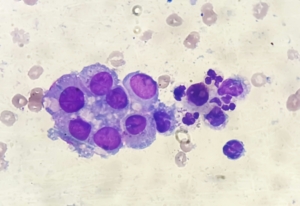Bacterial duo triggers colorectal cancer
US and Dutch researchers have found that carcinogenic E. coli and B. fragilis versions in the gut of patients who developed precancerous polyps early in life trigger development of colon cancer by secreting proinflammatoy signals, depleting mucus and inducing DNA damage.
In Science, the researchers from John Hopkins University and Radboud University Medical Centre report that they found patches of biofilms enriched with Escherichia coli and Bacteroides fragilis in tissue samples from patients with familial adenomatous polyposis (FAP). When the researchers implanted these bacteria from FAP patients into mice, they found that mice which were colonised with both bacterial species were substantially more prone to invasive cancer and death than mice implanted with only one of the bacterial species.
First author, Christine Dejea, found that colon tissue from FAP patients exhibited greater expression of two bacterial genes that produce secreted oncotoxins colibactin (clbB) and Bacteroides fragilis toxin (bft). Tumor-prone mice cocolonised with both bacterial species showed increased interleukin-17 in the colon and DNA damage in colonic epithelium with faster tumor onset and high mortality. Based on these results, the authors suggest that eliminating these bacteria from the mucus lining of FAP patients early in life may be beneficial.


 Unsplash+
Unsplash+
